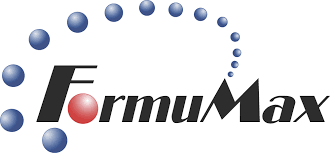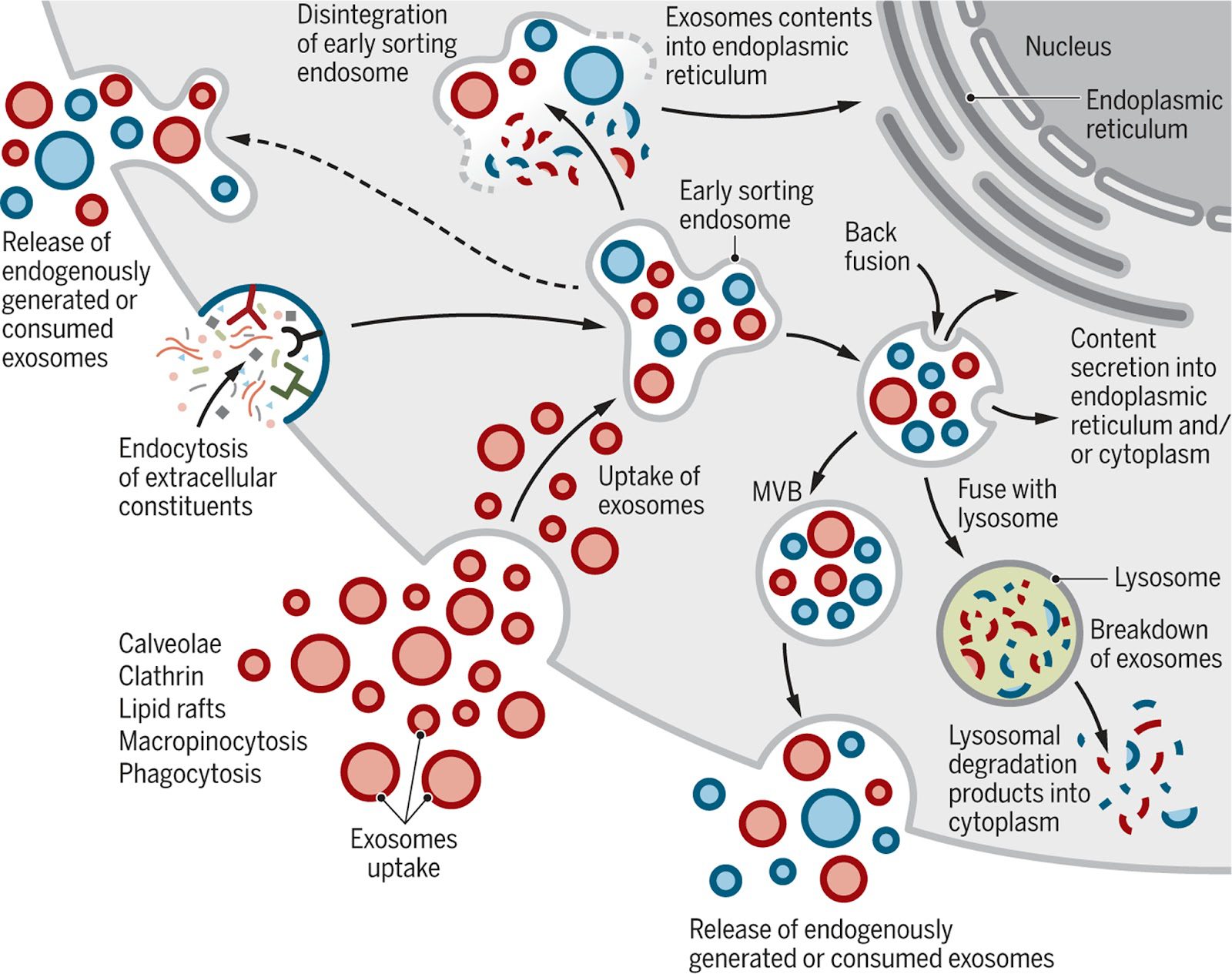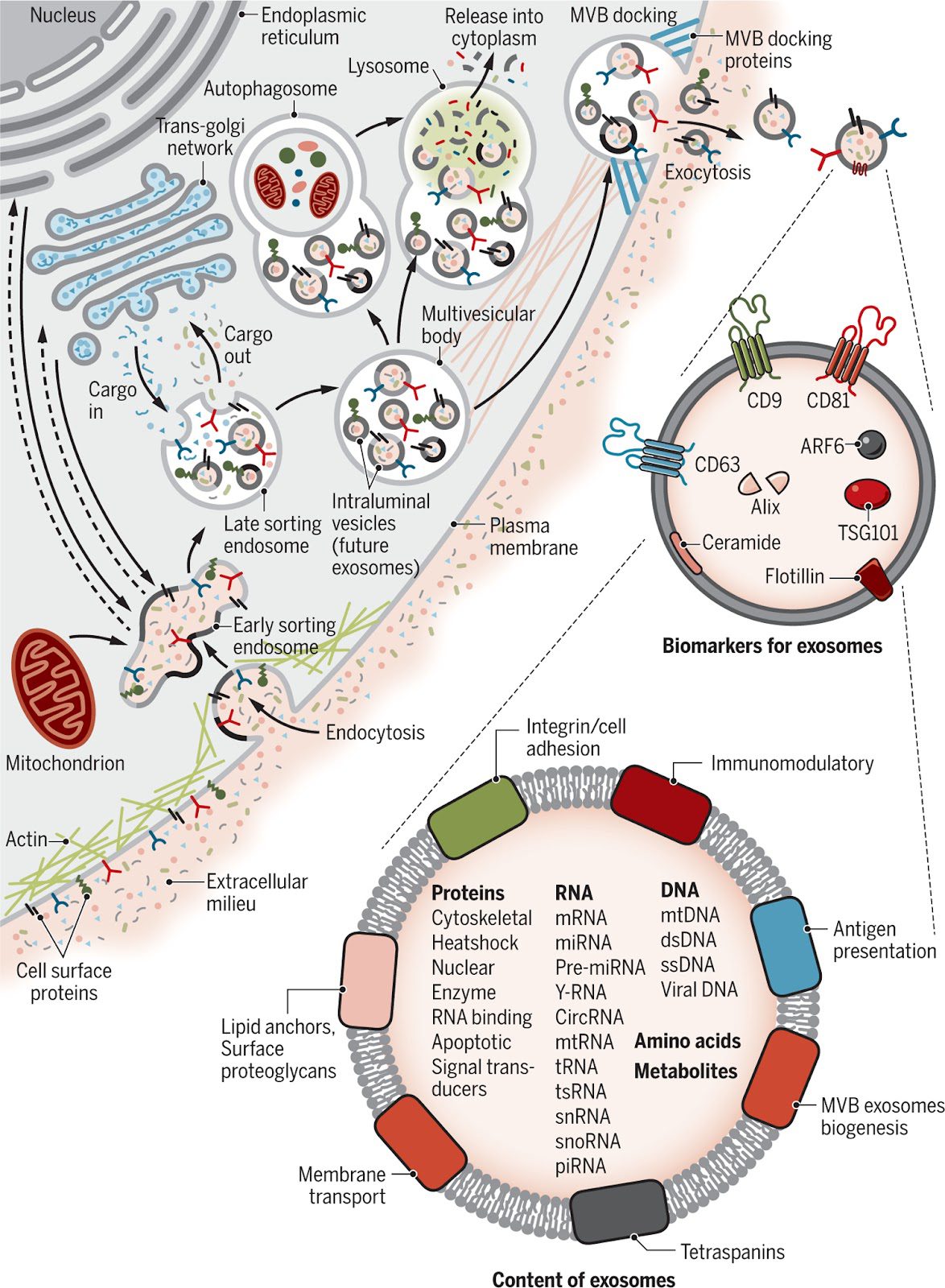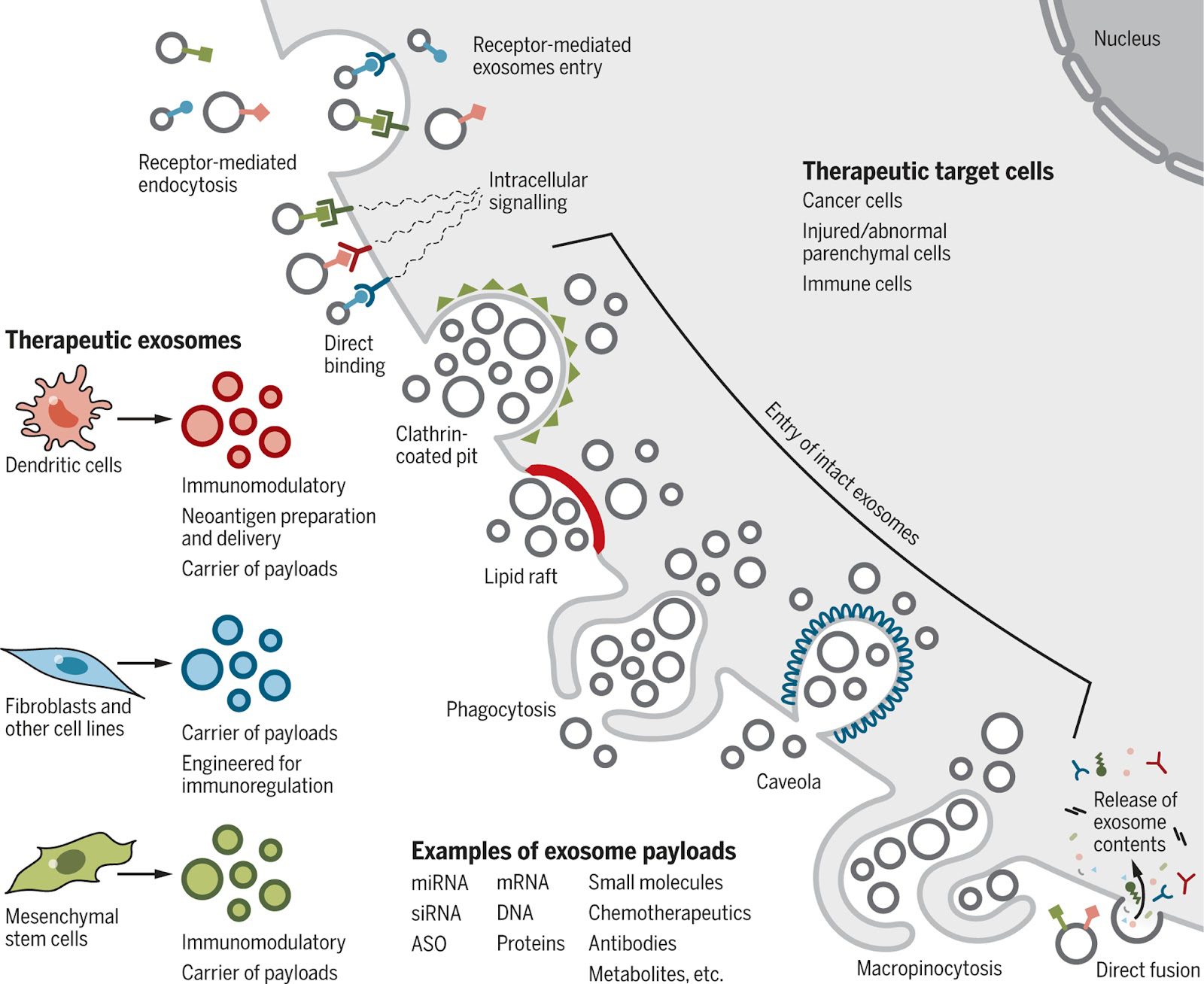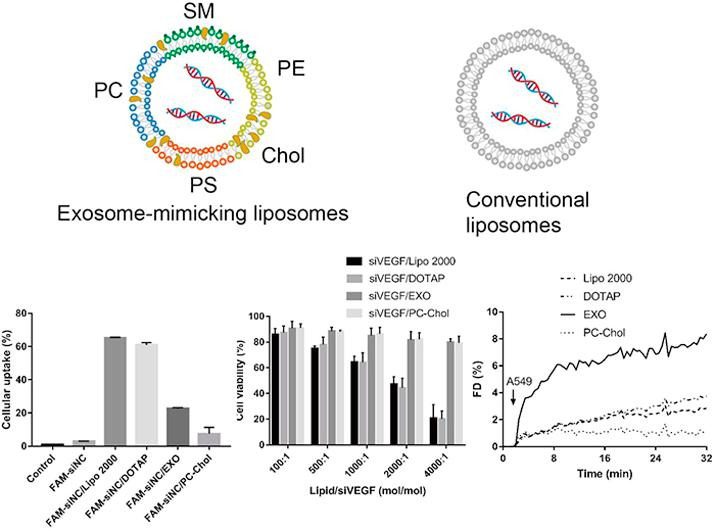Exosome-Mimicking Liposomes (Mikosome™) Explained
Exosome-mimicking liposomes (EMLs) represent an innovative approach in the field of drug delivery systems. They are artificially synthesized vesicles, engineered to mimic the natural properties of exosomes while overcoming their limitations.
The process of creating EMLs involves two primary steps: First, liposomes are prepared through techniques like thin-film hydration or reverse-phase evaporation. Then, these liposomes undergo a series of extrusion steps through filters with decreasing pore sizes. This process results in liposomes that not only resemble exosomes in size but also in composition and function.
Here are some key features of EMLs:
- Size and Shape: EMLs are typically 30-150 nanometers in diameter, closely mimicking the size of natural exosomes.
- Composition: They possess a lipid bilayer structure similar to exosomes, allowing them to carry both hydrophilic and hydrophobic substances.
- Function: Like exosomes, EMLs can cross biological barriers and deliver their cargo directly to target cells.
In essence, EMLs combine the best of both worlds – the specificity and biocompatibility of exosomes, with the ease of production and modification associated with liposomes.
Mikosome™ vs. Conventional Liposomes
The comparison between Exosome-Mimicking Liposomes (EMLs) and conventional liposomes is vital to understanding their respective roles in drug delivery systems.
Conventional Liposomes have been widely used for drug delivery due to their biocompatibility, ability to encapsulate a diverse range of drugs, and potential for modification. However, they often face challenges such as rapid clearance by the immune system, instability in the bloodstream, and lack of targeted delivery, which can lead to off-target effects and diminished therapeutic efficiency.
On the other hand, EMLs are designed to overcome these limitations. Here are some key advantages of EMLs over conventional liposomes:
- Enhanced Stability: EMLs are more stable in the bloodstream, which extends their circulation time and increases the chance of reaching the target cells.
- Targeted Delivery: Similar to natural exosomes, EMLs can deliver their cargo directly to specific cells, reducing off-target effects.
- Reduced Immunogenicity: As EMLs mimic the properties of exosomes, they are less likely to be recognized and cleared by the immune system.
Fig 4: Comparison of exosome-mimicking liposomes with conventional liposomes for intracellular delivery of siRNA
In conclusion, while conventional liposomes have their merits, EMLs offer a more precise, efficient, and safer alternative for drug delivery.
Mikosome™ in Drug Delivery
Exosome-mimicking liposomes (EMLs) have shown significant promise in the domain of drug delivery. By leveraging the unique advantages of both natural exosomes and artificially synthesized liposomes, EMLs are paving the way for enhanced drug delivery systems.
Several notable features make EMLs an excellent vehicle for drug delivery. They exhibit superior stability in the bloodstream, targeted delivery capabilities, and reduced immunogenicity compared to conventional liposomes. Their ability to cross biological barriers, such as the blood-brain barrier, enables them to deliver therapeutic agents to specific cells or tissues.
EMLs can be employed to carry a variety of substances, including small molecules, proteins, peptides, and even nucleic acids for gene therapy applications. Additionally, the encapsulation of drugs within EMLs can protect them from degradation, thereby prolonging their half-life and enhancing their bioavailability.
It’s important to clarify that the Mikosome™ provided by FormuMax are intended strictly for research purposes. They are not approved for clinical or therapeutic use. They serve as a valuable tool for scientists investigating targeted drug delivery and related areas of therapeutic research.
While EMLs hold substantial potential, more research is required to fully understand their capabilities and limitations in a clinical context.
